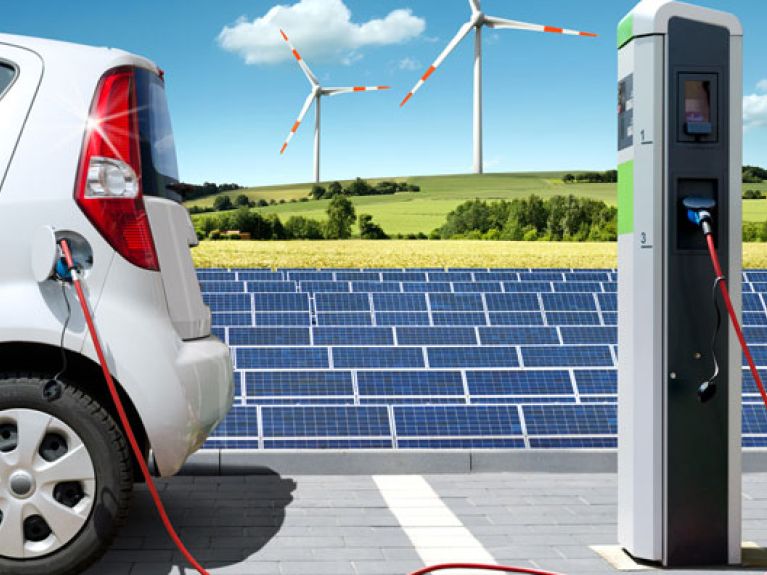The Future of the Energy Transformation
The goal of the Energy Transformation is to make Germany one of the most eco-friendly and energy-efficient economies in the world. What will be the next steps? Three questions to Sigmar Gabriel, Federal Minister for Economic Affairs and Energy:

The major energy-transformation projects of this parliamentary term have been adopted. You therefore said in the summer that the next phase of the Energy Transformation could begin. What challenges will this next phase bring for the energy market?
It's true that we have tied up the various loose ends of the Energy Transformation with the amendment of the Renewable Energy Act, the Electricity Market Act and the Act on the Digitization of the Energy Transformation. This also means that the Energy Transformation is now being closely coordinated with our 'electricity neighbours' and with the European Commission. As a result, we have a stable legal and economic foundation.
We will set the course for 2050 in the coming years. In the energy sector, the decisions we make will have a long-term effect, so they are important for 2050: heating systems are often used for 20 years and longer; buildings, power stations and industrial plants frequently for more than 40 years. The investments that are made in the 2020s and 2030s will therefore greatly influence our energy system in 2050. They should be made in sustainable technologies. Wasted investments can be avoided in this way, and society can be spared expensive repairs to the energy system in the future. In the next phase of the Energy Transformation, we need to make the right fundamental decisions in climate and energy policy as a basis for these investment decisions.
What issues must the government tackle in the next parliamentary term to organize the next phase of the Energy Transformation?
One of the main challenges in the context of the Energy Transformation will be to reduce energy consumption in the medium to long term. By international comparison, Germany is one of the pioneers when it comes to decoupling energy consumption from economic growth. Even so, we must markedly intensify our efforts. Concerning the national and European instruments we should use to reach our efficiency targets, a few weeks ago we therefore launched the dialogue process with the 'Green Paper on Energy Efficiency'. In addition, in the course of the year we are planning to initiate a further dialogue process on the forward-looking decisions that need to be taken to complete the Electricity Market 2.0 and to drive further development towards an Energy Market 2.0.
Integrated energy is an overarching topic that is important for all sectors, because we will increasingly use renewable electricity to power our cars, heat our houses and produce our industrial goods. We want to organize this process as a major modernization and investment programme for Germany.
The dena Congress will attract about 700 experts and decision-makers from business and politics to discuss the future of the Energy Transformation. What question about the future of the Energy Transformation would you like the congress participants to discuss?
Of all the changes we are currently experiencing in the energy world, the fundamental question of energy policy remains unchanged: how can we ensure a secure, sustainable and affordable energy supply? I am therefore hoping for answers to the question: how can digital technologies help us in the future to ensure a reliable and cost-effective energy supply in an energy system with a growing share of renewable energies and more networking.
dena Congress on 'The Future of the Energy Transformation' on 22 and 23 November 2016 in Berlin

